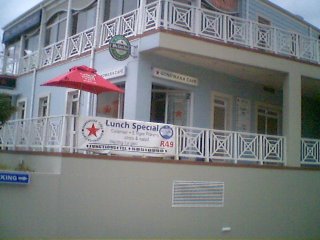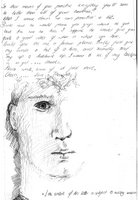
The response to this blog has been great. Thanks to everyone who is participating. I have seen that people are reading the blog from all parts of the world! So for those of you from Equador, or Egypt or Amsterdam or Austria, who are viewing "Sletroep" but may not be familiar with Afrikaans ( the de facto official language of the South African Defense Force in the 1980’s) the following translation may be useful:
The term “sleg troep” literally means “bad soldier”. Perhaps more rotten than bad because the inference was that one “sleg” soldier could contaminate an entire group. To be “sleg’ was more than just to be lacking in discipline; it was not conforming. It was not being part of the general group mentality that prevailed.
Behaviour that did not conform, or was not understood, would be attributed to that individual being either on drugs or a “voken Kommunis” or a “voken moffie”. By 1987 in the 10 Anti-Aircraft regiment, there didn’t seem to be much debate amoung the permanent force leadership (and their hangers on) that I was definitely a scary combination of all three these evils. The debate seemed more to revolve around which of my friends (by virtue of association with me) should be categorised as drug adicts, communists or gays .
I maybe brought it on myself by not integrating with those around me. I remember in Rundu, I was on a strange mission. For one, I had decided not to spend any money at all. I was there for three months and we would get a special “danger pay” for being on the border. Everyone used this money to go into the base ( about 10km drive though the bush) and buy beer and sweets and stuff. For me not spending was an exercise in discipline and stoicism.
I was studying two subjects through unisa at the time, so I spent a lot of time reading for my studies and reading other books I had brought along. I listened to reggae music and my mono speaker cassette recorder. I kept a journal and drew pictures in a notebook. This must have been very scary to those around me who were generally more interested in screaming at each other, slapping each other, stealing from each other and just generally being stupid.
I refused to eat meals with the rest of the people in the “section”. I should explain….As anti-aircraft artillery, our mission at Rundu was to defend the airbase from airborne assault. To do this a “battery” consisting of four “sections” was deployed in the bush around the runway. (One section at roughly each of the corners of the runway). Each “section” consisted of two 35 mm Oerlicon anti aircraft guns, connected by cable to a Radar. The radar would be at the centre of the section and the guns about 50 m away from it on each side. So the centre of the “section” was around the radar. This I where the section commander (normally a leutenant) had his tent. Each of the guns had a gun commander. I was a gun commander. An each gun commander would have a team of six or seven “gunners”. So to come back to the eating arrangements.. What would happen is that the section would converge for meals in a tent near the radar, metal trestle table were set out. Food would be driven in from the base in shiny steel warming canisters. ( there was a kitchen at the base) Eating this food would be a continuous shouting match, swearing and spiting and shoving. Completely crazy. I could not stand it!
I ate my food alone at my tent by the gun ramp.

